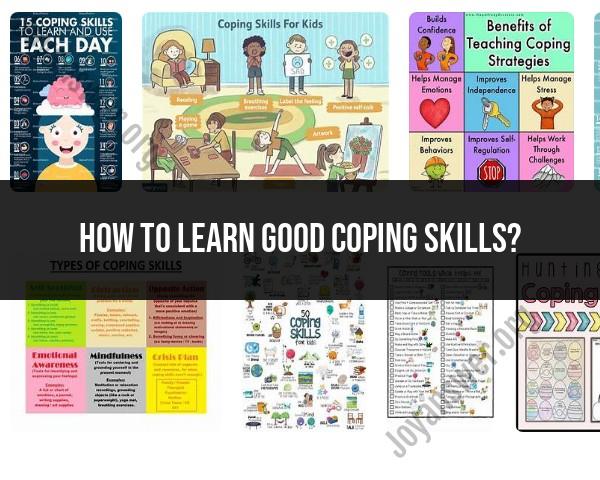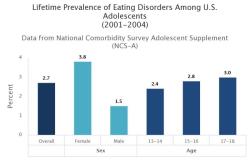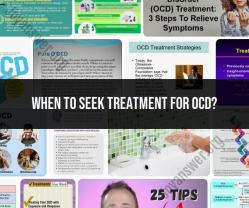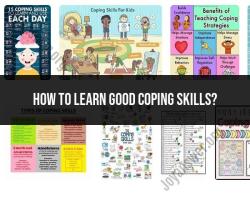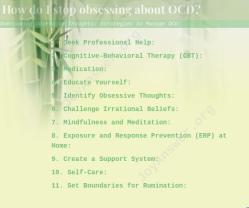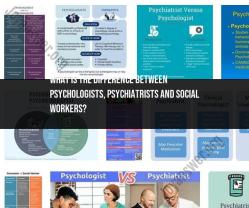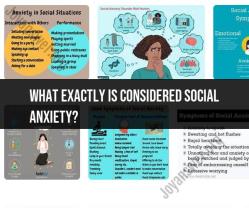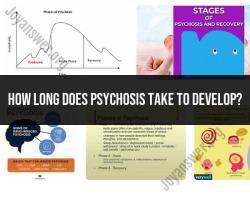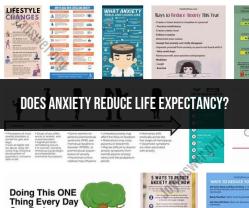How to learn good coping skills?
Learning good coping skills involves developing strategies and techniques to manage stress, deal with difficult emotions, and navigate challenging situations effectively. Here are some strategies for learning and practicing effective coping skills:
Identify Stressors: Start by identifying the sources of stress and challenges in your life. This could include work deadlines, relationship issues, financial concerns, health problems, or other life events.
Understand Your Reactions: Pay attention to how you typically respond to stress and difficult emotions. Do you tend to avoid problems, become overwhelmed, or react impulsively? Understanding your reactions can help you identify areas for improvement.
Practice Mindfulness: Mindfulness involves paying attention to the present moment without judgment. Mindfulness practices such as meditation, deep breathing exercises, and body scans can help you cultivate awareness, reduce stress, and improve emotional regulation.
Develop Problem-Solving Skills: Learn effective problem-solving techniques to address challenges proactively. Break problems down into manageable steps, brainstorm potential solutions, and evaluate the pros and cons of each option.
Build Social Support: Maintain strong connections with friends, family, and supportive peers. Social support can provide emotional validation, practical assistance, and a sense of belonging, all of which are essential for coping with stress.
Engage in Healthy Coping Activities: Participate in activities that promote relaxation, enjoyment, and self-care. This could include exercise, hobbies, creative outlets, spending time in nature, listening to music, or practicing self-compassion.
Challenge Negative Thinking: Notice and challenge negative thought patterns that contribute to stress and anxiety. Replace negative thoughts with more realistic and balanced perspectives.
Set Boundaries: Establish clear boundaries to protect your time, energy, and well-being. Learn to say no to commitments that don't align with your priorities and values.
Seek Professional Help: If you're struggling to cope with stress or difficult emotions, consider seeking support from a mental health professional. Therapy can provide tools, strategies, and personalized guidance for managing stress and improving coping skills.
Practice Self-Reflection: Take time to reflect on your experiences, emotions, and coping strategies. Journaling, self-assessment exercises, and regular check-ins with yourself can help you gain insights into what works best for you and identify areas for growth.
By incorporating these strategies into your daily life and being intentional about practicing effective coping skills, you can enhance your resilience, reduce stress, and improve your overall well-being. Remember that building coping skills takes time and practice, so be patient and compassionate with yourself as you learn and grow.
Building Resilience: Effective Strategies for Coping Skills
Developing healthy coping skills is essential for navigating life's challenges and maintaining emotional well-being. Here are some effective strategies and practices:
1. Effective Strategies:
- Self-awareness: Recognize your triggers and early warning signs of stress or distress. This allows you to intervene before emotions escalate.
- Mindfulness: Practice techniques like meditation or deep breathing to stay present, manage anxious thoughts, and regulate emotions.
- Problem-solving: Develop skills to identify and address problems constructively, seeking support when needed.
- Healthy expression: Express your emotions in healthy ways, like journaling, talking to trusted individuals, or creative outlets.
- Relaxation techniques: Engage in activities like exercise, yoga, or spending time in nature to promote relaxation and reduce stress.
- Social support: Build strong connections with friends, family, or support groups for emotional validation, encouragement, and shared experiences.
- Seeking professional help: Don't hesitate to seek professional guidance from a therapist or counselor if you struggle to manage difficult emotions or situations.
2. Specific Activities and Practices:
- Mindfulness exercises: Try guided meditations, mindful breathing exercises, or progressive muscle relaxation techniques.
- Creative expression: Engage in activities like art, music, writing, or dancing to express emotions and find release.
- Physical activity: Regular exercise helps manage stress, improve mood, and boost overall well-being.
- Journaling: Write down your thoughts and feelings to gain clarity, process experiences, and track progress.
- Time management: Develop healthy routines and schedules to avoid feeling overwhelmed and manage stress effectively.
- Gratitude practices: Reflect on things you're grateful for to cultivate positive emotions and counter negativity.
- Humor: Laughter can be a powerful tool to release tension, improve mood, and cope with challenges.
3. Teaching Children and Teenagers:
- Open communication: Create a safe space for open and honest communication about their emotions and challenges.
- Model healthy coping: Demonstrate healthy coping mechanisms through your own actions and responses to stress.
- Role-playing: Practice healthy coping skills in role-playing scenarios to help them develop confidence and apply them in real situations.
- Encourage positive outlets: Provide opportunities for creative expression, physical activity, and connecting with supportive peers.
- Validate their feelings: Acknowledge their emotions without judgment and help them understand why they might be feeling a certain way.
- Seek professional guidance: If their struggles seem overwhelming or persistent, don't hesitate to seek professional support from a therapist or counselor who specializes in working with children and adolescents.
Remember, developing healthy coping skills is a journey, not a destination. Be patient, experiment with different strategies, and seek support when needed. By building your resilience and equipping yourself with effective coping mechanisms, you can navigate life's challenges with greater confidence and well-being.
